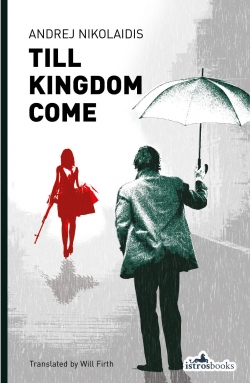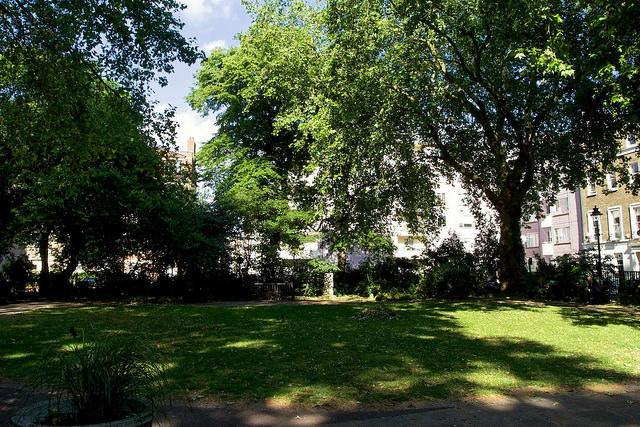“Windows, even those with heavy shutters, were no help against the rain. It came with a wild westerly one moment and with a sirocco the next, constantly changed the angle at which it fell, attacking now frontally, now from the side, until it had crept through every invisible opening in the walls and woodwork. In their rooms, people made barriers of towels and babies’ nappies beneath the windows. When they were sodden they would be wrung out in the bathroom and quickly returned to the improvised dykes.
Roofs let through water like a poorly controlled national border. Like in a bizarre game of chess, families pulled out pots and pans across the floor: Casserole to f3, frying pan to d2.”
 As befits its title, Till Kingdom Come – the latest novel by Montenegrin author Andrej Nikolaidis’, his third to be released in English by London based indie publisher Istros Books – opens with a deluge of Biblical proportions. The heavens above the historically rich tourist town of Ulcinj have unleashed an extended season of torrential and relentless rain. As water rushes down the streets and seeps through walls and floorboards, the reader is quickly introduced to the narrator, a freelance journalist, a man who faces the world with reserved and stoic humour. Or so it seems. But then nothing is what it seems, and for our poor narrator most of all.
As befits its title, Till Kingdom Come – the latest novel by Montenegrin author Andrej Nikolaidis’, his third to be released in English by London based indie publisher Istros Books – opens with a deluge of Biblical proportions. The heavens above the historically rich tourist town of Ulcinj have unleashed an extended season of torrential and relentless rain. As water rushes down the streets and seeps through walls and floorboards, the reader is quickly introduced to the narrator, a freelance journalist, a man who faces the world with reserved and stoic humour. Or so it seems. But then nothing is what it seems, and for our poor narrator most of all.
It soon becomes apparent that our hero has long suffered from periodic lapses in temporal/spatial reality. He has been known to just drift off, seeming to have lost consciousness to those around him, while he finds himself in some distant country or city previously strange to him that he suddenly knows intimately, until he wakes up back where he started. This dissociative tendency which has haunted him for years has left him with a rather slippery sense of self that, more than anything, seems to engender an abiding sense of ambivalence. That is, until the arrival of a man claiming to be his uncle causes him to have reason to doubt the veracity of his entire existence. He had believed that his mother was dead and he was raised by his grandmother, a belief supported with stories, photographs, a history and an unusual Jewish name. Discovering that his past was faked, sets him off on a passionate journey of speculation and self discovery, assistsed by a police inspector, directed by an anonymous email source and fueled by an obsessive fascination with serial killers and conspiracy theories.
Biting in intensity, taking broad political and historical swipes at medieval and modern history – poking the bones of Oliver Cromwell and stirring up the horrors of the Balkan War – Nikolaidis is in fine form, building upon and expanding the canvases he painted in his previously translated works, The Coming and The Son. Ah yes, Thomas Bernhard would be proud. Yet, for its sarcastic humour, metafictional wanderings through Red Lion Square in London and up the stairs of Conway Hall to the tiny second story office of Istros Books, and the endless speculations about the role of the black arts in the exceptional acts of cruelty and violence perpetrated by mankind that have littered history; Till Kingdom Come is a starkly serious book. The narrator exists on a plane of his own, while his friends succumb to pressure of feeling too much, of being unable to cope with a world that is fundamentally uncaring. As he muses at one point:
“Alas, there is only one happy ending – the Apocalypse – even if it is only a promise. Everything else is just an open ending, a continuous series of open endings, whose resolution not only resolves nothing but further complicates already unbearably complicated things.”
For my money, Till Kingdom Come is a more mature and demanding work than The Coming and The Son, both of which I thoroughly enjoyed. Nikolaidis is a highly political journalist and here he is clearly intent to skewer politics and economics with more direct, at times shocking, barbs. The Bernhard inspired intensity of The Son is dialed back a little while the historical diversions that provided an intriguing counter commentary to The Coming have been worked back into the narrative. As in these first two Istros releases, translator Will Firth captures the mood and intensity seamlessly. And, on an entirely personal note, it was a delight to see Red Lion Square and the Istros Books office worked into the text. However when I visited this summer I did not magically find myself strolling down Oxford Street. I got hopelessly lost and had to be rescued from the Tube Station by the editor herself, but then London on a map and London on the ground for someone who has never been there is, well, a metaphysical rather than metafictional experience to say the least!

Copyright JM Schreiber 2015

The red lion scene was great party of it inspired by day I met him when we sat and watched a guy being photographed whilst drinking mint tea
LikeLiked by 2 people
The scenes set there and in Conway Hall were great fun. How lucky you are to have met him. At least I got to see the park and the office this summer even if I managed to get hopelessly lost on my way!
LikeLike
Wow, this sounds incredible – very complex and different from anything I’ve ever read.
LikeLiked by 1 person
This is the third novel I have read by Nikolaidis and it is definitely the most ambitious. I am crazy about Istros Books. They are a tiny indie publisher that specializes in Balkan literature, bringing new and exciting voices to English readers. It can be difficult to get their books in North America. They do become available as e-books, usually with a delay because they are such a small operation. Of course they can be ordered from the UK and I know they were working on a print on demand option. (See, I am their self appointed North American champion. 🙂 )
LikeLiked by 2 people
Yes tiny in size but very large in enthusiasm and committment! Thanks for championing us in the US! Our books can be ordered by bookshops there through Ingrams Lightning Source!
LikeLike
My pleasure Susan. The US and Canada… it would be great to someday see your books on the shelves in my favourite local indie bookstores!
LikeLike
What an intriguing sounding book! And how great that you got to go to Red Lion Square and meet the editor at Istros!
LikeLiked by 1 person
It is wonderful to be able to support a small grassroots publisher and learn something about what goes into the process of bringing new work to light in translation.
LikeLike
This sounds like an accomplished work – interesting that you see it building on his previous novels. For new-comers like me it might be a good place to begin.
LikeLiked by 1 person
His earlier books are very good, but this is a much more complex and ambitious novel. A less ambitious reader than yourself might be well advised to start with one of his earlier books. If you check out Stu’s site under Bernhard week, Nikolaidis wrote a guest blog that would give you a sense of his influences.
LikeLiked by 1 person
I was wondering what everyone else thought of this one! I should maybe have started with some of his earlier work; this one was extremely complex. There’s so much to unpack; did you catch the connection between the first “episode” and the end of the book? I only noticed it when I was writing my review (forthcoming in Shiny New Books in October).
LikeLiked by 1 person
I look forward to your review. His earlier work is simpler but provides a stylistic foundation that he combines and builds on in this book. Although the stories are not connected, reading the three novels as a loose trilogy would be helpful. As would a feel for the work of Thomas Bernhard. Nikolaidis definitely has a fevered highly political imagination and it’s on display at full force here.
LikeLike